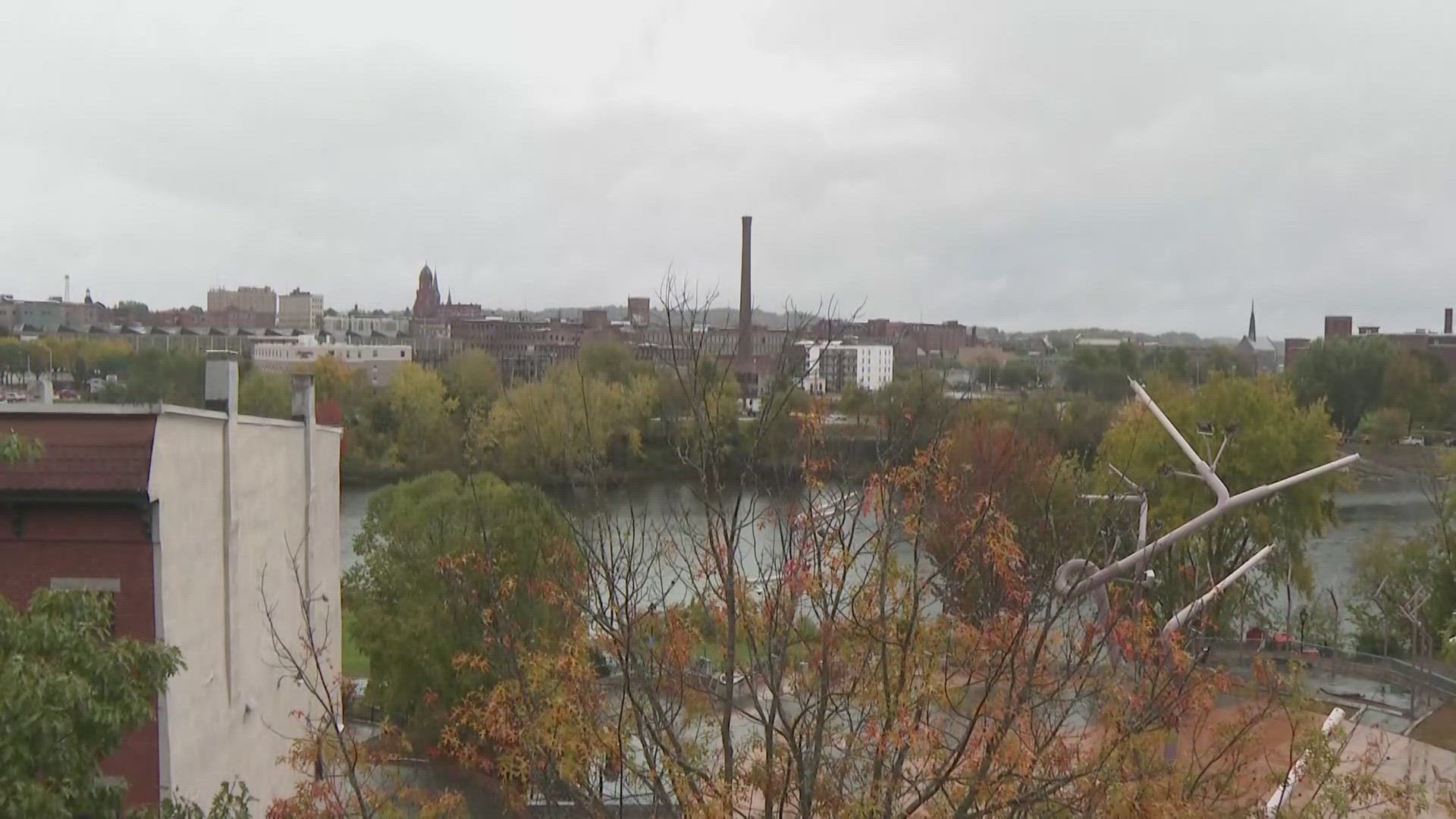AUBURN, Maine — Off Vickery Road and Main Street in southern Auburn sits a parcel of land owned by the city for decades. It was zoned for a long time but just recently became the focal point of a housing project city staff said will change the city's housing ecosystem.
It's called Winter Oaks and Auburn is proposing adding 100 units of small, single-family homes it said will be affordable. It will also feature businesses along with a childcare center in the area to encourage families to move in.
Mayor Jason Levesque said while the project has been toyed around with for decades, it wasn't until President Joe Biden's visit to the city earlier this summer that spurred the inspiration into action. City staff said the White House told them Housing and Urban Development funding is coming through for cities to apply for.
"We wanna open up the opportunities for people to live, work, and play in the same neighborhood," Levesque said.
Levesque added that if the city council approves the proposal and the federal government grants the funding, the community would be self-sufficient.
"We really don't know what's going to happen other than they're going to live there, raise families, and work in our communities," Levesque said.
The need comes as the pressure to build homes in Maine is mounting.
A new report from a collaboration of Maine housing experts shows Maine is short more than 84,000 homes needed to account for the current short supply and expected population growth.
"The only way you're going to get enough housing is to have more housing," Glen Holmes, Auburn director of business and community development, said.
Holmes said building out the proposal took weeks of work and it will be up to the city council to decide if they want city staff to push ahead with the application.
But additional pressure is mounting as homelessness in Auburn is spiking. Holmes pointed to the hundreds of people asking for general assistance in the city, compared to just several dozen in previous years.
"We have people who are full-time employed living on the streets," Homes said. "Where do we find the connection to get those people housed?"
Holmes said he hopes the increase in housing stock brings more people out of low-income and smaller apartments and into homes. He said those low-level apartments could then become available for an unhoused person who is given enough resources to get on their feet.
But aid for unhoused individuals in Auburn is sparse. Greg Whitney is the board president for a drop-in day shelter that functions out of the First Universalist Church of Auburn. Unhoused people can sit, eat, and shower during the day on Wednesdays and Saturdays.
"The need is just getting bigger and bigger," Whitney said.
Whitney said when they opened in early 2022, hardly anyone showed up; in recent weeks, it's been 70 people on Saturdays and 50 people on Wednesdays, on average.
"I don't think there is any short-term solution. More housing will help, but people also need more services," Whitney said.
Whitney agreed more housing is better, but said both Auburn and Lewiston should consider emergency shelters as the winter months approach, and invest in transitionary housing so unhoused people can get from the street and into an apartment.
If the city council in Auburn approves the application, it will be sent to the federal government by the end of October.

